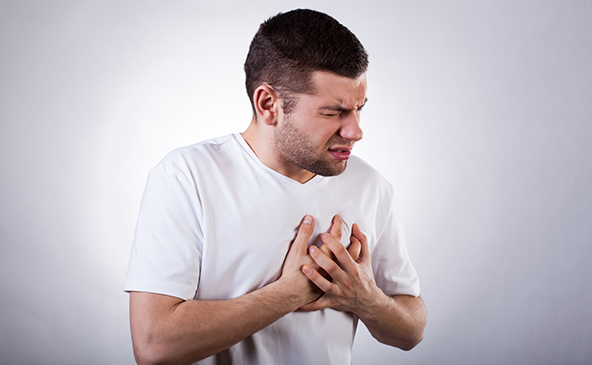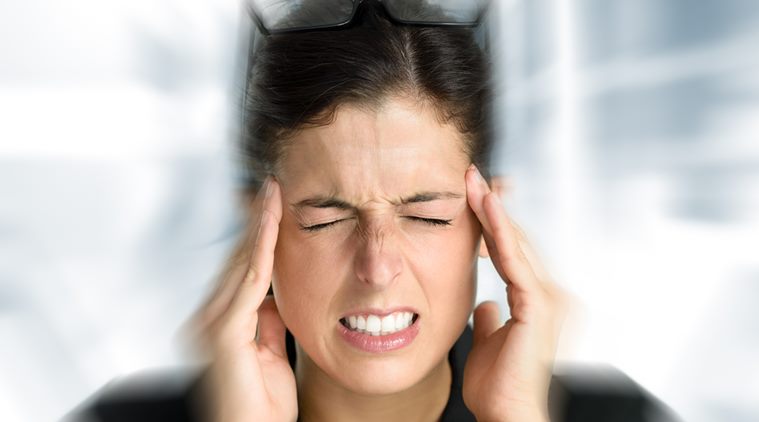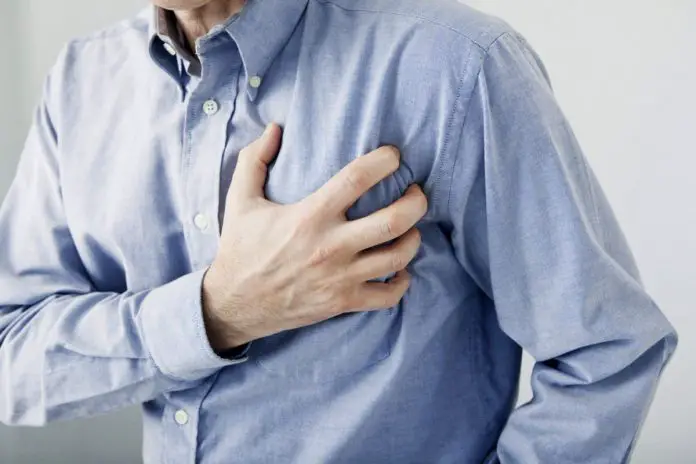If something were to go wrong with your heart, would you even notice it? You know how in movies you see someone with an alarming chest clutch followed by dropping on the floor in pain? Well, that isn’t the case in real life. Not all heart problems come with clear heart attack warning signs. For starters, some heart symptoms don’t even happen in your chest. However, if you aren’t sure, the easiest way would be for you to do a medical checkup. But how do we detect an early heart attack symptom? Here are a few ways which you can actually do so.
1) Chest discomfort

Chest discomfort is one of the most common signs of the heart problem. While having a chest discomfort, you will feel pain, tightness, or pressure in your chest. The feeling usually lasts longer than a few minutes. It may happen when you’re at rest or when you’re doing something physical. In order words, it can happen at any time of the day. If it’s just a very brief pain or if it’s a spot that hurts more when you touch or push it then it’s probably not your heart. However, you should still get it checked as soon as possible. If the symptoms are much more serious and don’t go away after a few minutes, you should probably seek help as soon as possible.
2) Feeling dizzy

Just like the top point, a lot of things can actually make you feel dizzy. Maybe you stood up too fast, didn’t get enough sleep, or it may even be the blazing hot sun. However, if you feel pain in your chest and feel unsteady, it could be a heart attack warning sign.If the pain does not go away, immediately contact the emergency hotline and let them know about your situation. Sometimes, standing up too fast can also cause you to feel dizzy because the heart isn’t able to pump the blood to the places where it is needed as fast as you stood up. However, if you constantly face this problem, there might be something wrong with your heart. You may want to consider doing a checkup or seeking medical attention.
3) Stomach pain/heartburn/nausea

Some people might even vomit when having a heart attack. You can get stomach pain for a few reasons. It could be something you ate or merely just something that couldn’t digest itself well. However, you should be aware that it can also occur during a heart attack. Therefore, if you fall into this category, it’s best if you consult a doctor to get you checked up. For all you know, it might not be anything that gotta do with your stomach. Instead, it’s something about your heart that is causing all the pain and discomfort.
4) Cold Sweat

We are not talking about how you sweat when you’re working out. We are talking about cold sweat. Breaking out in a cold sweat for no obvious reason could be a sign of a heart attack. If this happens along with any of these other symptoms, call your emergency hotline to get to a hospital right away. Never attempt to drive yourself there. You might be feeling strong but as time passes, the pain will increase. Therefore, don’t put your life together with the life of others in danger. Call for an ambulance instead of asking someone to drive you there. If there’s a jam on the way, you won’t be able to make it to the hospital in time.
5) Easily Tired

There are a few symptoms of a heart attack. One of them being if you get tired easily and frequently. For instance, climbing the stairs, or just doing something that you had no problem doing in the past. It is a sign that your heart isn’t functioning the way it should be. The heart isn’t able to pump the blood sufficiently to your entire body. But how do you tell if it’s just because you’re feeling tired or it’s because of your heart? Well, if you were to experience it, you will definitely know. The feeling is completely different from each other.
6) Swollen legs and feet

If this happens to you, get to the hospital as soon as possible. This could be a sign that your heart isn’t pumping blood as effectively as it should. When the heart can’t pump fast enough, blood backs up in the veins which in return, causes bloating. Heart failure can also make it harder for the kidneys to remove extra water and sodium from the body, which can also lead to bloating. Just to be sure, if you are experiencing bloating and is not sure what causes it, seek medical help. This matter should be resolved as soon as possible. However, if you have a condition in which your legs are constantly bloated, do consider checking for other symptoms that may result in a heart attack.
In conclusion, heart attacks may happen to anyone at any time of the day. Therefore, it is crucial to keep a lookout for any symptoms. If you realize that you have all or close to all the symptoms, make sure you see a doctor as soon as possible. The longer you delay, the worse it is going to get. If you know that you are prone to having heart diseases, make sure that you take extra precautions on the symptoms. In order to prevent having heart problems in the future, do consider eating healthy and also exercising regularly.
https://www.facebook.com/tallypressmy/















